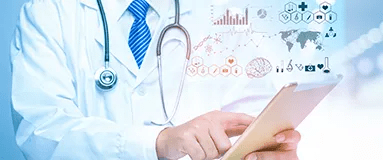The healthcare industry has long been a key part of the global economy and society. With the advent of digital technology, this sector has witnessed significant transformation, becoming more efficient, accessible, and reliable. A vital cog in this digital wheel is healthcare software development services, which have revolutionized the way health services are delivered and managed.
Understanding Healthcare Software Development Services
Healthcare software development services refer to the creation of customized software solutions designed to address specific needs within the healthcare sector. These services encompass various aspects such as electronic health records (EHR), telemedicine software, patient management systems, medical billing software, and much more. They are aimed at enhancing healthcare delivery, improving patient outcomes, and facilitating streamlined communication among healthcare providers, patients, and other stakeholders.
The Importance of Healthcare Software Development Services
1. Enhancing Patient Care: Custom healthcare software can provide healthcare professionals with easy access to patient records, improving diagnosis accuracy and treatment plans. It also facilitates real-time monitoring of patients, thereby enhancing the quality of care.
2. Streamlining Processes: Healthcare software helps automate various administrative and clinical tasks, reducing the chances of errors and saving valuable time. It simplifies tasks like scheduling appointments, billing, and managing patient records.
3. Facilitating Remote Healthcare: Telemedicine software enables healthcare providers to offer services remotely, making healthcare more accessible, especially for patients in remote locations or those unable to visit healthcare facilities physically.
4. Improving Decision Making: Healthcare software can analyze vast amounts of data, generating insights that can help in making informed decisions regarding patient care, resource allocation, and other critical aspects.
The Future of Healthcare Software Development
With the advent of technologies like Artificial Intelligence (AI), Machine Learning (ML), and the Internet of Things (IoT), the future of healthcare software development looks promising. These technologies can further enhance the capabilities of healthcare software, making it more predictive, personalized, and efficient. For instance, AI can be used to predict health risks based on historical data, while IoT devices can facilitate continuous patient monitoring.



